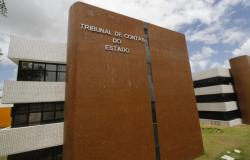
Historic session approved the request for collective amnesty of the Guarani-Kaiowá peoples, from the Guyraroká community
This Tuesday (2), the Amnesty Commission recognized the violation of the rights of the indigenous people of Mato Grosso do Sul. This decision makes the Brazilian state recognize for the first time in history its guilt in the persecution, torture and death of indigenous people during the dictatorship.
The historic session analyzed the request for collective amnesty from the Guarani-Kaiowá peoples, from the Guyraroká indigenous community, located in Caarapó. The case of the Krenak indigenous people, from Minas Gerais, was also analyzed. This stage results from an action by the MPF (Federal Public Ministry), which formalized the request for reparation on August 31, 2015.
Initially, the violations were recognized by the National Truth Commission, which was in Dourados and heard from members of the Guyraroká community about the process of territorial confinement they suffered. It is estimated that more than 8,300 indigenous people were killed in the period as a result of state action or the inaction of the Brazilian government.
This was the first session promoted by the body, created in 2002, to analyze possible reparations for indigenous people whose human rights were violated during the Brazilian Military Dictatorship. The Amnesty Commission Council is a collegiate advisory body, linked to the office of the Minister of State for Human Rights and Citizenship.
During the session, indigenous leaders from the Krenak and Guarani-Kaiowá ethnic groups demanded full recognition of rights violations. As a form of reparation, they requested the implementation of more public policies aimed at the mental health of indigenous people, access to culture and the demarcation of traditional territories.
After voting and approval, the president of the commission, Eneá de Stutz de Almeida, in a symbolic gesture, knelt down and apologized to the Guarani-Kaiowá people on behalf of the Brazilian state.
We agree with all the terms and proposals that were brought. We will make recommendations for the competent authorities to take the necessary measures so that you finally have land, health and, above all, respect. Something that has been withheld for more than 500 years”, stated the president of the Amnesty Commission.
On social media, the minister of indigenous peoples, Sônia Guajajara, pointed out that this decision will be one of the first steps towards recognizing the violence legitimized by the Brazilian state. “The recognition of collective reparation does not erase the arrests, murders and torture committed, but it is an important step towards memory and justice, and a way of marking how we were also severely persecuted during this very violent period in Brazil’s history.”
Violation of rights – The military dictatorship, which oppressed left-wing movements and persecuted opponents of the regime from 1964 to 1985, also claimed victims among Brazilian indigenous peoples.
As shown in the book “The fuzis and the arrows – The story of indigenous blood and resistance in the dictatorship”, by the journalist and writer from Mato Grosso do Sul Rubens Valente, during this period, federal settlement policies forced displacement of indigenous people, causing deaths and profound disintegration of the ways of life of traditional peoples.
Furthermore, land was released for occupation by third parties, whose possession of the land was legitimized by property titles.
The Guyraroká area was occupied again in 2004, starting with the right-of-way of the state highway, which borders the indigenous land (MS-156), and later occupying a portion of the declared perimeter: 65 of a total of 11 thousand hectares.
Receive the main news from the State via WhatsApp. Click here to access the channel Campo Grande News and follow our social media.
Tags: Federal commission recognizes violation rights indigenous people dictatorship Cities
--



